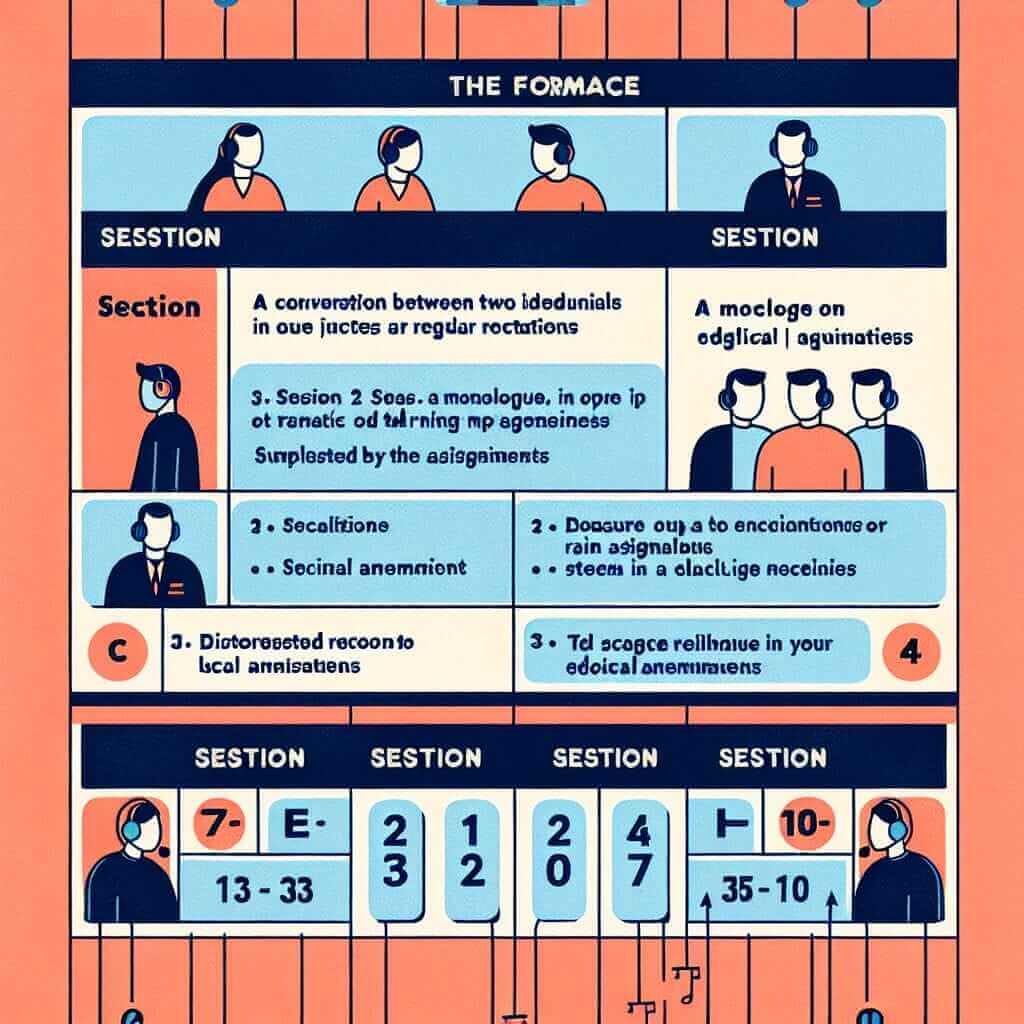The IELTS Listening test can be challenging, even for native English speakers. To excel, you need to understand a variety of accents, process information quickly, and stay focused for the duration of the test. Whether you are aiming for a band 6 or a band 8, employing effective listening strategies can dramatically improve your score. This article will equip you with practical tips and techniques to boost your confidence and help you achieve your target score.
Understanding the IELTS Listening Test Format
Before diving into specific tips, let’s review the structure of the IELTS Listening test:
- Duration: 40 minutes (30 minutes for listening and 10 minutes to transfer answers)
- Sections: 4 sections, each with 10 questions
- Content: A range of accents and dialogues, from everyday conversations to academic lectures
- Question Types: Multiple choice, matching, sentence completion, note-taking, labeling diagrams/maps

Useful IELTS Listening Tips
Here are some proven strategies to help you ace the IELTS Listening test:
1. Predict and Prepare
- Before the audio starts: Utilize the time given to preview questions. Identify key words and anticipate the topic and potential answers. For instance, if the question asks for a “type of accommodation,” think of possibilities like “hotel,” “hostel,” or “apartment.”
- Focus on instructions: Pay close attention to the instructions for each section. They tell you how many words you can use and what information to listen for.
2. Active Listening
- Focus on keywords: Train yourself to identify keywords related to the questions while listening. These words often signal the answer.
- Don’t get stuck: If you miss an answer, don’t dwell on it. Move on to the next question. You’ll have time to go back at the end of the section.
- Pay attention to signposting language: Speakers often use phrases like “moving on to,” “in contrast,” or “to sum up” to guide listeners. These phrases can help you follow the conversation and anticipate what’s coming next.
3. Develop Vocabulary and Grammar
- Expand your vocabulary: A strong vocabulary is crucial for understanding various accents and topics. Make a habit of learning new words and practicing their pronunciation.
- Grammar matters: Understanding grammar nuances will help you interpret meaning and answer questions accurately, especially in sentence completion tasks.
4. Practice with Real IELTS Materials
- Utilize official practice tests: Familiarize yourself with the test format, question types, and timing by practicing with official IELTS materials.
- Listen to various accents: Expose yourself to different English accents through podcasts, news channels, or TV shows.
5. Utilize the Note-Taking Space
- Develop a system: Use abbreviations, symbols, or shorthand to jot down key information while listening. For example, “approx.” for “approximately” or “+” for “and.”
- Don’t write full sentences: Focus on capturing keywords and phrases that will help you recall the information when answering the questions.
Applying Tips to IELTS Listening Questions
Let’s apply these tips to some example questions:
Example 1: Sentence Completion
- Question: The museum is located in the ___ part of the city.
- Tip: Listen for directional cues like “north,” “south,” “east,” or “west.”
Example 2: Multiple Choice
- Question: What is the main reason for the student’s call?
a) To inquire about a course
b) To reschedule an appointment
c) To request study materials - Tip: Focus on the beginning of the conversation, as it often states the purpose of the call. Listen for keywords related to the options, such as “course,” “appointment,” or “materials.”
Example 3: Map Labeling
- Question: Label the map with the following locations: café, library, bookstore.
- Tip: Pay attention to directional language (“turn left,” “opposite the”) and prepositions (“next to,” “in front of”) to identify the locations on the map.
Common Mistakes to Avoid
- Losing focus: The IELTS Listening test requires sustained concentration. Avoid distractions and stay engaged throughout.
- Overthinking: Don’t spend too much time analyzing every word. Trust your instincts and move on.
- Ignoring spelling and grammar: Incorrect spelling or grammar can result in a wrong answer, even if your understanding is correct.
Practice Makes Perfect
Remember, consistent practice is key to improving your listening skills. By implementing these tips, practicing regularly, and staying focused on your goal, you’ll be well on your way to achieving a high score on the IELTS Listening test.